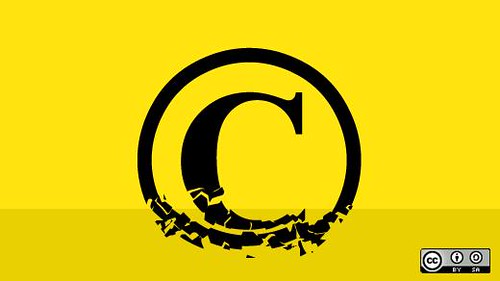Applying a Creative Commons License to Your Work

The moment you have created a copyrightable literary, musical, artistic, or dramatic work in a fixed material form, it is protected by copyright laws and barring some exceptions, you are the legal owner of the copyright. As the owner of the copyrighted work, you can decide how the work is used, by permitting others to use your work. However, you can also choose to license your work openly, by applying a Creative Commons license to the work. How you apply a Creative Commons license to your work depends on how you chose to publish it. Below you will find our recommendation for a Creative Commons license, as well as instructions for marking your work with a Creative Commons license.
Selecting a License
Before you can apply a Creative Commons license to your work, you need to decide what license you want to use. If you are licensing an original work, we recommend choosing the CC BY-NC (Attribution-NonCommercial) license. Under the terms of this license, others can share, use, and build upon your work, provided they credit you as the original creator, but they cannot use your work commercially. It is also compatible with most other Creative Commons licenses, which can be useful when incorporating material from other works. To see the full list of licenses, go to the full list of license options.
However, if your work is based on one or more pre-existing items, it qualifies as an adaptation and requires that you choose a compatible license. Fortunately, the Creative Commons website has a guide to selecting an adapter’s license under their FAQ section, If I derive or adapt material offered under a Creative Commons License, which CC license can I use?
Labeling Your Work
Online Material (e.g., Websites)
Use the Creative Commons License Chooser to select your license. You will then need to copy the HTML code and insert it into your website on the pages you wish to license under Creative Commons. Although this is the most complex option, it will significantly increase your resource’s visibility by making it appear in search engines that support Creative Commons.
Offline Material (e.g., PDFs, Word Documents, Etc.)
If your work is hosted offline, you should indicate on the material that it can be used under Creative Commons licensing by placing the below statement on a title or copyright page. You can find the license URL from the full list of licenses here.
Optional Step: You can also add the license buttons with the above statement and a link to the license. If you would like to add the license buttons to your work, you can download them from the Creative Commons Downloads page.
Third-Party Platforms (e.g., Youtube, Pressbooks, Etc.)
Many third-party sites, such as YouTube and Pressbooks, will allow you to apply Creative Commons licenses to your content through the site. If you have uploaded material to one of these sites, you need to find the appropriate setting for placing a Creative Commons license on your work.

